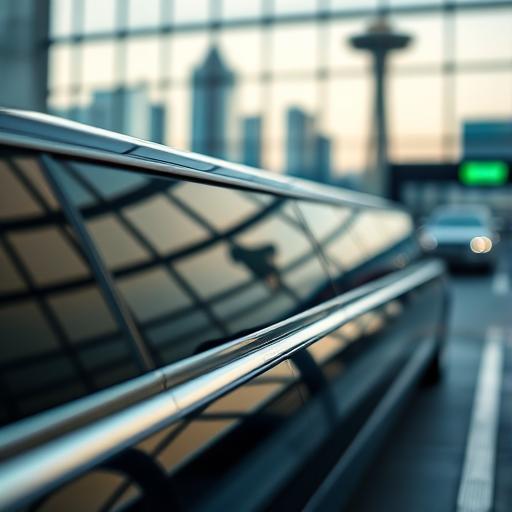The Allure of the Pacific Northwest for Filmmakers
The Pacific Northwest, with its moody skies, lush evergreen forests, and dramatic coastlines, offers a stunning backdrop for any film. From the urban core of Seattle to the misty peaks of the Cascades, directors find a versatile setting to bring their visions to life. Getting everyone to these amazing spots, starting with a reliable seattle airport limo service for your key personnel, is the first step in a complicated logistical arrangement.
This region’s unique appeal presents an equally unique set of production challenges. Weather can change in an instant, and prime shooting locations are often nestled in remote areas with limited access. A successful production here isn’t just about capturing the perfect shot; it’s about mastering the movement of people and equipment through a gorgeous but demanding territory.
The Complex Puzzle of Film Production Logistics
Every film shoot is a massive puzzle with thousands of moving pieces. You have cast members arriving on different flights, a crew needing to get to set before sunrise, and truckloads of sensitive camera and sound equipment that must be handled with care. A single delay can cause a ripple effect, costing the production valuable time and money. It’s a high-stakes game of coordination that happens long before the director yells “Action!”
Effective production management is about anticipating needs and having contingency plans ready. This means mapping out every route, scheduling every pickup, and ensuring every piece of gear is accounted for. In a place like the PNW, this also means preparing for a sudden downpour or a closed mountain pass. The groundwork laid in pre-production determines whether the shoot runs like a well-oiled machine or a chaotic scramble.
Seamless Cast & Crew Transportation in the Seattle Metro
For any production based in Seattle, people-moving is a primary concern. Your A-list actors expect comfortable, private, and punctual transport from Sea-Tac Airport to their hotels and to the set. At the same time, the hardworking crew needs dependable group transportation, often in vans or shuttles, to get them and their personal kits to various locations on a tight schedule.
Coordinating this requires a deep understanding of the city’s traffic patterns and a flexible fleet of vehicles. A professional transportation partner can manage these differing needs, providing luxury sedans for talent and spacious vans for the crew. This frees up the production coordinator to focus on other pressing issues, confident that everyone will arrive where they need to be, on time and ready to work.
Beyond the City: Transporting to Remote PNW Locations
Many of the PNW’s most breathtaking filming locations are far from city conveniences. Think of the rugged shores of the Olympic Peninsula or the volcanic slopes of Mount Rainier. Getting a full cast and crew to these spots is a serious undertaking. The roads can be narrow and winding, and cell service is often spotty, making communication a challenge.
This is where specialized transport planning comes into play. It involves using vehicles suited for tougher terrain, like 4×4 SUVs or heavy-duty vans. Drivers must have local knowledge of the routes and potential hazards. Careful scheduling is critical to account for longer travel times and to make certain the entire company arrives safely and as a group to begin the day’s shoot.
Equipment Hauling: More Than Just a Moving Job
Moving people is one thing; moving millions of dollars worth of camera, lighting, and sound equipment is another level of responsibility. This gear is not only expensive but also delicate. It needs to be transported in vehicles that can protect it from bumps, vibrations, and the PNW’s famous moisture. Climate-controlled trucks are often a necessity.
Logistics for equipment goes beyond just driving. It includes careful loading and unloading procedures, secure storage between shooting days, and sometimes even specialty crating for very sensitive items. A crew’s confidence is built on knowing their tools will arrive in perfect working condition. A missed detail here can bring the entire production to a halt.
Coordinating Accommodations and Location Scouting Support
Logistics isn’t just about wheels on the ground. It often extends to supporting other key production departments. A local logistics partner can offer invaluable insight during location scouting, providing information on road accessibility, parking for production vehicles, and potential basecamp areas. Their knowledge of the area can save the locations department days of work.
They can also assist in arranging accommodations, especially when filming in smaller towns with limited options. By block-booking hotels or sourcing private rentals, they can keep the entire cast and crew housed conveniently close to the shooting location. This integrated approach makes the entire production feel more connected and run more efficiently.
Why Partnering with a Local Transportation Expert is Key
Trying to manage all these transportation details from a production office in another state is a recipe for headaches. A local partner on the ground in Seattle possesses the regional knowledge that can’t be found on a map. They understand the best times to cross the floating bridges, know the back roads to avoid a traffic jam, and have relationships with local vendors.
This partnership provides peace of mind. Instead of the production team making dozens of calls to arrange for different vehicles and drivers, they make one call to a trusted contact. This central point of communication streamlines everything, ensuring that from the moment your star steps off the plane to the final equipment wrap-out, every logistical detail is handled professionally and proficiently.
